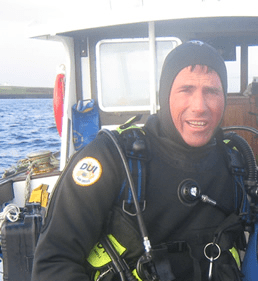
What Is The Golden Rule Of Scuba Diving?

The golden rule of scuba diving is to always remember to never hold your breath while ascending, because as you ascend to the surface, the pressure around you decreases and any air that you have in your lungs will expand, and could cause serious injury or even death due to lung over-expansion.
Therefore, it is critical to continuously exhale as you ascend to the surface. This is a fundamental rule that all scuba divers must follow to ensure their safety while diving.
What are the three basic rules of scuba?
The three basic rules of scuba diving are:
- Breathe continuously and never hold your breath: As a scuba diver, you should always be breathing continuously through your regulator. Holding your breath while scuba diving can cause lung overexpansion injuries and potentially fatal situations.
- Ascend slowly and control your buoyancy: It’s important to ascend slowly and maintain control of your buoyancy to avoid decompression sickness and other injuries caused by rapid changes in pressure.
- Always dive with a buddy and stay within your limits: Scuba diving should never be done alone. Always dive with a buddy who is properly trained and experienced. Additionally, it’s crucial to stay within your limits and avoid pushing yourself beyond your abilities. This helps to ensure a safe and enjoyable diving experience for everyone involved.
What are the 4 fundamentals of diving?
The four fundamentals of diving, also known as the four principles of diving, are:
- Buoyancy Control: Proper buoyancy control is essential for any scuba diver to be able to maintain a comfortable and safe dive. It allows the diver to move through the water with ease and avoid contact with the reef or other underwater structures.
- Breathing: Breathing correctly and regularly while diving is important to ensure proper gas exchange and prevent lung overexpansion injuries. It’s important to breathe slowly and deeply while maintaining a relaxed pace.
- Dive Planning: Proper dive planning is crucial to ensure a safe and enjoyable dive. This includes selecting the appropriate dive site, choosing the right equipment, determining the appropriate gas mix, and setting depth and time limits.
- Situational Awareness: Situational awareness involves being aware of one’s surroundings and the condition of the diving environment. This includes monitoring depth, air supply, and the movements and safety of the diving buddy. It also involves being aware of potential hazards such as currents, marine life, and other divers in the area.
I hope you enjoyed this article about what is the golden rule of scuba diving?
I’d love to hear from you. Tell us about your adventures of diving and snorkelling. Please use the comments section below. Please also share your photos. Either from your underwater cameras or videos from your waterproof go-pro’s!
If this article hasn’t answered all of your questions. If you have more questions either about snorkelling or scuba diving (or specifically about what is the golden rule of scuba diving), please comment below with your questions.
There will also be many more articles about scuba and scuba diving safety tips (and on snorkelling too) for you to read and learn about this fabulous sport.
Have fun and be safe!
